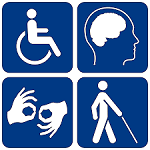 By: Loyd Willaford and Matt Baker
By: Loyd Willaford and Matt Baker
In Itzhaki v. Port Auth. of N.Y & N.J., a port authority public safety officer claimed that she was discriminated against on the basis of an injury sustained at work. The officer alleged that she would have been promoted to sergeant but for her injury. The Port Authority moved for summary judgement and argued that her injury precluded her from being on the job and therefore that she couldn’t perform the essential functions of the job. The U.S. Federal Court for the Southern District of New York agreed and granted the Port Authority’s motion.
Sylvia Itzhaki suffered a knee injury during the course of her employment as a public safety officer with the Port Authority of New York and New Jersey. Prior to this injury, she had participated in a comprehensive evaluation for promotion to the rank of sergeant. Per the Port Authority’s policies, candidates were ranked on various criteria and then placed into one of three categories, “highly recommended,” “recommended,” or “not recommended.” Itzhaki was placed in the “recommended” category—. 25 officers were selected for promotion from the “highly recommended” group, and Itzhaki was not promoted. Her knee injury occurred between the end of the evaluation period and the announcement of the promotions.
Itzhaki claimed that her knee injury was the reason that she was not promoted, and brought a suit claiming intentional discrimination and failure to accommodate. The district court held that her intentional discrimination claim held no merit because the injury affected her work and was not merely pretextual:
Itzhaki’s claim fails because she cannot establish that she was “otherwise qualified to perform the essential functions” of the job of Sergeant.
Additionally, the court found that her failure to accommodate claim could not move forward because there was no reasonable accommodation to be made. Her injury required her to be home for an extended period of time, and the job required the sergeant to be on-site and active. Thus no accommodation could be made:
A reasonable accommodation can never involve the elimination of an essential function of a job.
Even if Itzhaki had been able to show that she could perform the essential duties of the role and no reasonable accommodation was made, her claim would still fail because she was unable to prove that her injury was the sole reason she wasn’t promoted. Her score placed her in the “recommended” group, but that was no guarantee of promotion, and in fact there were many officers who were placed in the “highly recommended” group.
This case illustrates two key concepts which are important in disability discrimination cases: first the ability to perform the essential functions of a job with or without accommodation is a necessary first step to making a successful claim. Here, Itzhaki was not cleared to physically do the work of a sergeant, so she could not have performed the duties called for in the promotion. The second key concept is that to prove discrimination to a jury, a plaintiff must have some evidence beyond his or her opinion to rebut whatever non-discriminatory reason the employer gives for the adverse employment action. Here, Itzhaki received a lower rating than those who were promoted.
If Itzhaki had presented evidence that others who were not disabled had been promoted in the past with ratings similar to Itzhaki over those with higher ratings, this would have enough evidence to get to a jury. Without this evidence she had nothing but her opinion and one comment by her supervisor. This was not enough to convince a judge she deserved a jury trial. As matter of law, the comment by the supervisor “[I]f you are wondering when you get promoted, it should be soon. It would have happened sooner, but you were out.” might have been enough to send this case to a jury, had it not been for the fact that Itzhaki was not physically capable of performing the job at the time she was denied the promotion.
**Visit our Premium Website for more information on Disability Discrimination **



